- Home
- Fergus Hume
The Crowned Skull Page 14
The Crowned Skull Read online
Page 14
‘That’s good hearing,’ Forde remarked to Dericka, who was reading the epistle over his shoulder.
‘Papa tells me nothing I did not know before,’ she replied, touching his smooth hair gently. ‘Go on. The important part of the letter has yet to come.’
This was true enough, for towards the end of his communication Sir Hannibal strongly advised Dericka to stop searching for the assassin of John Bowring. Also, he declared that he was going abroad and had sufficient money yearly to keep him comfortably. If he wanted more he would send to Dericka for the same. There was no chance of his coming back, and now that the trouble of Bowring’s death was ended by his retirement, Dericka could marry Forde and live happily.
On the whole, as Forde thought when he came to the signature, the letter hinted that Sir Hannibal was guilty of the crime laid to his charge.
‘No,’ said Dericka again, and guessing what Forde thought from the expression on his face. Papa is innocent, but he may have gone away to shield the true assassin.’
Miss Lavinia looked up with an exclamation. ‘Do you think that my brother-in-law knows who killed that miserable man?’ she asked.
Dericka nodded. ‘I can account in no other way for papa’s going into hiding,’ she said helplessly; ‘there is no reason otherwise.’
‘Unless he is guilty,’ said Miss Lavinia, grimly.
‘Aunt, you told me again and again that did not believe papa would commit a crime.’
‘Not one likely to bring him under the shadow of the gallows, at all events,’ said the old lady cautiously. ‘I would not say it to anyone but you, Dericka, or to Mr. Forde here, but that letter,’ she pointed with her lorgnette, ‘looks highly suspicious.’
‘I must say that I agree with Miss Quinton,’ remarked Forde, ‘and again, what I have learned from Miss Stretton and Anak seems to prove that Sir Hannibal had something to do with the matter.’
‘Tell me everything you have heard,’ said Dericka, growing slightly pale, but in a peremptory manner. In spite of her strong belief that Sir Hannibal was innocent she was beginning to falter, seeing that these two near and dear to her were also wavering as to the cleanness of the baronet’s hands.
Forde wasted no time in preliminaries. He then and there, in a blunt, brusque way, told what Anak had said, and what Miss Stretton had repeated.
Dericka listened with clasped hands, her eyes on his honest face. She saw no reason to disbelieve what he had said, but tossed her head irritably when Miss Stretton’s name was mentioned.
‘An adventuress,’ said Dericka contemptuously.
‘Yes and no,’ remarked Oswald quietly. ‘I think you are too hard upon Miss Stretton, my dear girl. She is no more an adventuress than many another woman who wants to get settled in life.’
‘I quite agree with you, Mr. Forde,’ cried Miss Quinton suddenly. ‘I have called Anne an adventuress myself, but, after all, since the woman’s face is her fortune why should she not try to gain an income from it. Anne comes of good stock, and I knew her parents very well. She is also clever and handsome, and your father—who is so weak that he is bound to marry again—might do worse than make Anne his wife. At least, she would keep him out of mischief.’
‘I don’t like Miss Stretton,’ said Dericka obstinately.
‘No woman ever does like another,’ retorted Miss Quinton, ‘especially when a woman wants to become a second mother.’
‘She’d never mother me,’ flashed out the girl colouring.
‘I don’t think there is much likelihood,’ said Miss Lavinia dryly, ‘seeing that Hannibal is under the ban of the law.’
Forde waited until this war of words was ended, then addressed himself to Dericka.
‘You cannot deny,’ said he, ‘that Miss Stretton behaved extremely well with regard to saving this house from being wrecked and getting your father out of the way.’
‘She did that to marry him,’ said Dericka ungratefully.
‘Oh,’ retorted the barrister rather coolly, for he thought Dericka unreasonable. ‘I don’t think Miss Stretton is so very anxious to marry your father. Even with the chance of getting sixty thousand a year she is willing, as I told you, to retire from the position of Sir Hannibal’s possible wife on receipt of five thousand pounds.’
‘And who will give her that?’ asked Dericka, fingering the deed significantly.
‘You will, if you are wise. Miss Stretton’s evidence would certainly damage Sir Hannibal.’
‘And the mere fact that she is trying to blackmail shows how much she loved papa. It was the money she was after.’
‘I don’t think she ever disguised the fact, Dericka.’
‘Then she’s a bad woman,’ said Miss Trevick decidedly.
Forde shrugged his shoulders, being quite unequal to arguing with so prejudiced a young lady.
‘What do you think, Miss Quinton?’ he asked.
‘Anne is like the rest of our sex,’ said Miss Lavinia indifferently, ‘neither wholly black, nor wholly white, but particoloured. At one time I should have been sorry to see her Hannibal’s wife, but now, I can tell you, Mr. Forde, that he needs a woman with a head on her shoulders to marry him, so why not Anne?’
‘I manage him,’ said Dericka sharply.
‘Quite so, child. But I understand you intend to manage Mr. Forde.’
Miss Quinton chuckled over her joke, and even Dericka smiled.
‘Well,’ she said, after a pause, and making a concession, ‘perhaps I am hard on Miss Stretton. But so far as I can see from the present position of my father, she will never marry him, especially when she knows that I have the money.’
‘And her price?’ asked Forde curiously.
‘I’ll see her about that later,’ said Dericka shrewdly; ‘the first person to be paid is Mrs. Krent. The news that I am to marry Morgan is all over the town.’
Forde nodded. ‘I thought that Mrs. Tregar would prove a good town-crier,’ he said with satisfaction.
‘I want the gossip contradicted at once by Mrs. Krent,’ said Miss Trevick imperiously, ‘so I have asked her to come here to-night.’
‘And you will pay her one thousand a year, Dericka?’ asked the old lady disapprovingly.
‘Certainly,’ replied the girl with a nod. ‘Mrs. Krent will not give evidence as to the marriage of Morgan and her daughter other wise. If that marriage is not proved I may be obliged to marry him, and in any case there would be trouble.’
‘It seems to me that a thousand in all would be sufficient for Mrs. Krent,’ sniffed Miss Quinton.
‘I don’t agree with you, Aunty. After all, Morgan, insane as he is, is the son, and should be the heir of Mr. Bowring. It will be a small thing to give him and his wife one thousand out of sixty.’
‘Why not satisfy your conscience and give him the lot?’
‘No,’ answered Miss Trevick very decidedly, ‘I am not so quixotic as all that. My father told me that Mr. Bowring had every right to leave the money to him for some reason connected with doings in South Africa.’
‘Shady doings,’ said Miss Lavinia sharply.
‘Perhaps, Aunt; I can’t say. At all events I can make better use of the money in charity and such like things than can Morgan, who is scarcely responsible for his actions. I will give him and his wife one thousand a year and the Grange, rent free, to live in. Mrs. Krent can remain there also to look after the couple, for Mrs. Bowring seems to be almost as weak as her husband.’
‘What will your father say to all this?’ asked Forde, wondering at the prompt and business-like way in which Dericka was dealing with a very difficult situation.
‘He will say nothing seeing that he is absent, and you forget, Oswald, that the money is mine now. You may be quite sure that I’ll be just in every way. The first thing to be done is to settle with Mrs. Krent, so that the marriage of Morgan can be announced and this gossip stopped. Then I’ll see Miss Stretton and make a bargain with her as to holding her tongue.’
‘And then, Dericka?’
‘Then,’ said the girl determinedly, ‘you must find out who killed poor Mr. Bowring. When the real assassin is discovered and my father can come back, I’ll marry you.’
‘Not before?’ said Oswald in dismay.
‘It would not be fair to my father,’ said Miss Trevick gravely; ‘I wish him to be at the wedding of his only daughter.’
There was silence for a few minutes, while Miss Quinton and Oswald marvelled at the business-like qualities of Dericka. She looked from one to the other of their puzzled faces with a smile.
‘I dare say I seem to you to be hard,’ said she quietly, ‘but if you can tell me a better way to deal with the situation I am willing to be guided.’
‘No, my dear,’ said Miss Quinton; ‘you are right.’
‘I think so, too,’ said the barrister. Then, taking Dericka’s two hands, he looked quizzically into her flushed face. ‘But, really, you know, I shall be frightened to marry so clever a woman.’
‘Dearest,’ said the girl, kissing him, ‘I am only clever because the necessity of being clever has been forced upon me. Remember that from the age of fifteen I have had to do everything for my father, who would have gone to rack and ruin but for me. When I marry you, Oswald, you can take the head of the household. I resign in your favour, my dear. I have no wish to bear the burden longer than I can help. And now,’ she dropped her hands and turned away, ‘let us see if Mrs. Krent has arrived.’
‘Do you want me to be present, Dericka?’ asked Miss Quinton, gathering together her work.
‘Not unless you wish to, Aunty.’
‘Thank you; I have heard quite enough, my child. I’ll leave you and Mr. Forde to entertain the good lady, and I have no doubt that between you, a bargain will be struck likely to help Hannibal.’
‘Rest assured, Aunty, that my father will return here without a stain on his character.’
‘To marry the adventuress.’
‘If he likes,’ said Dericka, rather unexpectedly. ‘I fear I am hard on Miss Stretton. Perhaps if I knew her better I should find her a more amiable character than I think she is.’
‘I doubt it, my love,’ said Miss Lavinia grimly, and going to the door. ‘You and Anne are both business women, and two of a trade never agree. Both you and Mr. Forde and Hannibal will be woefully henpecked.’
When the old lady, with this parting shot, left the room, Dericka turned to Oswald rather ruefully.
‘See the character I get for trying to bear the burden of the Trevick family.’
‘Never mind, darling heart,’ said he caressingly; ‘when you become my wife you will not need to bear any burden.’
‘You don’t think me unwomanly?’ faltered Miss Trevick.
‘My dear, I think you are the sweetest and cleverest girl in the world. I don’t think a woman need be a helpless log in order to be what old-fashioned ladies like Miss Quinton call womanly. That early Victorian simpering damsel is a thing of the past, Dericka. The women of the day are better fitted to be the comrades of men than their grandmothers were. I would much rather have you as you are, than a romantic, useless girl, to recline on a sofa all day reading novels.’
‘It seems to me,’ said Dericka, scarcely able to keep from smiling, ‘that our marriage will be something like a partnership.’
‘It will be a comradeship,’ said Forde quickly, ‘and as such is more likely to be amicable than if it were founded upon romantic love. I don’t despise love, dearest. All the same, I like a better foundation than simply passion upon which to base my life and yours. We must mingle prose and poetry in our married life, my own.’
‘What a twentieth century wooing,’ laughed Dericka, and rather amused by the view Oswald was taking of the position. She would have continued the discussion but that Mrs. Krent was announced at the moment.
Both turned towards the door as the footman closed it, leaving Mrs. Krent inside, that good lady looking stouter and more comfortable than ever.
She still wore her black dress and her gaudy shawl, her silver ornaments and mauve gloves, presenting an incongruous figure, at which the young pair could scarcely help smiling. With her red face and obtrusively yellow hair, upon which a saucy bonnet quite out of keeping with her years was perched, Mrs. Krent looked what she truly was—an oddity.
‘What a night!’ she said gruffly, and dropping without invitation into a chair; ‘and after such a lovely day, too. As I drove here from the Grange it came on to rain, and now it’s pouring cats and dogs. I didn’t want to leave my warm fireside, I can tell you, young lady.’
‘I’m sorry you should be put to any inconvenience, Mrs. Krent, but it is necessary for me to see you about Morgan’s marriage.’
‘Who told you of that?’ asked Mrs. Krent suddenly, and stopped fanning herself with a lace handkerchief.
‘My father did, and Mr. Forde also.’
‘What do you know about it, sir?’ asked the housekeeper.
‘Merely what Sir Hannibal told me. He has agreed to your terms.’
‘I know that,’ snapped Mrs. Krent, ‘seeing that he swore on the Book.’
‘But,’ continued Forde smoothly, ‘you will have to deal with me and with Miss Trevick, here.’
‘Then where is Sir Hannibal?’
‘He has gone abroad for the time being.’
‘Ho!’ snorted the housekeeper; ‘and how do I know but what you two won’t diddle me?’
‘You’ll be paid the thousand a year, never fear,’ said Dericka in a quiet voice. ‘I’ll get Mr. Gratton to draw out the deed. In any case, since Morgan is truly the heir I think that he and his wife should have the money you ask for them. In fact,’ added Dericka, after a moment’s reflection, ‘I shall hand over two thousand a year.’
‘Lord, Miss!’ cried Mrs. Krent aghast. ‘What will your pa say to that?’
‘My father has left everything in my hands,’ said Miss Trevick, not considering it necessary to speak of the deed of gift; ‘but if I do this, Mrs. Krent, you must speak plainly.’
The housekeeper became suspicious. ‘In what way?’
‘You must tell me where your daughter was married to Morgan, and hand me a certificate of the marriage. Also, you must tell me all you know about Mr. Bowring and my father in Africa.’
‘You wouldn’t like to hear everything,’ said Mrs. Krent, rather disturbed. ‘You seem to be a kind young lady, and I’ll do whatever you ask me to do. I can be easily led,’ added Mrs. Krent with emphasis, ‘but if I’m forced to be nasty I can make things very unpleasant for some people.’
‘For Sir Hannibal, for instance?’ suggested Forde suavely.
Mrs. Krent nodded. ‘There are things in his life which he would like to be kept quiet. I declare,’ cried Mrs. Krent, much after the style of Lord Clive, who made a similar remark, ‘that I am surprised that I ask for so little. With what I know I could make Sir Hannibal give me half the money.’
‘Then why are you so moderate?’ asked Dericka suspiciously.
‘Because I can’t be bothered with a lot of money, Miss. One thousand or two thousand a year is plenty, and anyone else can have the rest so far as I am concerned. I’ll trust you, Miss,’ she added suddenly; ‘you’ll know all that I know this very night, and within the hour. I am quite sure you’ll give me the money. I’ll tell you everything.’
‘About Mr. Bowring?’
‘Yes; and about your father, and about the Death’s Head.’
Chapter XIV An Unexpected Meeting
Forde had sat down to hear Mrs. Krent’s revelations, but when she mentioned the Death’s Head he started to his feet again.
‘I am glad to hear you mention that, Mrs. Krent,’ said he vigorously, ‘for I have an idea that the Death’s Head has much to do with the murder.’
‘What makes you think that?’ demanded Dericka, while the housekeeper leaned back and loosened her bonnet-strings with an enigmatic expression of countenance.
‘Remember what Miss Warry said, my dear, that Bowring turned pale and was
very surprised when he saw the skull in the tent. Depend upon it, the thing had some disagreeable memory for him, and such a memory may have to do with his death.’
‘I don’t quite follow you or agree with you, Oswald.’
‘Oh, I may be wrong,’ answered the barrister, dropping back into his seat; ‘all the same, that idea is firmly fixed in my head. However, no doubt Mrs. Krent here will be able to account for Bowring’s fears when he beheld the beastly thing.’

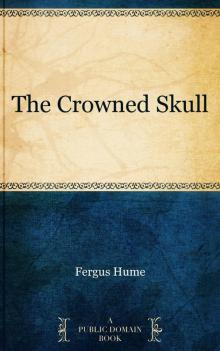 The Crowned Skull
The Crowned Skull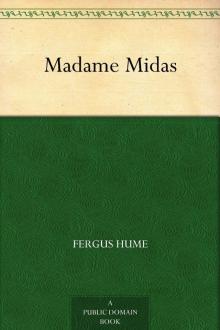 Madame Midas
Madame Midas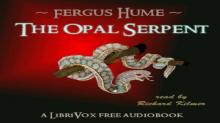 The Opal Serpent
The Opal Serpent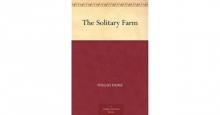 The Solitary Farm
The Solitary Farm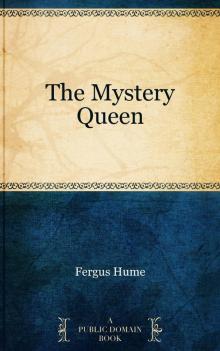 The Mystery Queen
The Mystery Queen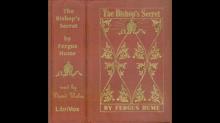 The Bishop's Secret
The Bishop's Secret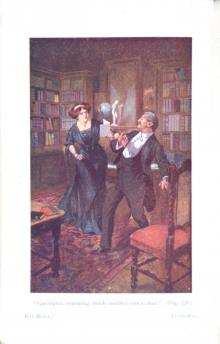 Red Money
Red Money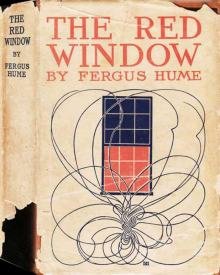 The Red Window
The Red Window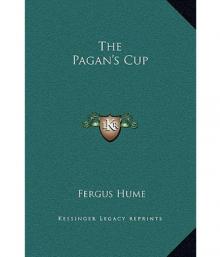 The Pagan's Cup
The Pagan's Cup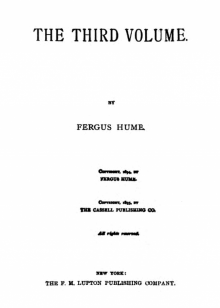 The Third Volume
The Third Volume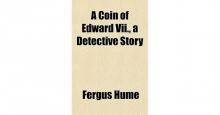 A Coin of Edward VII: A Detective Story
A Coin of Edward VII: A Detective Story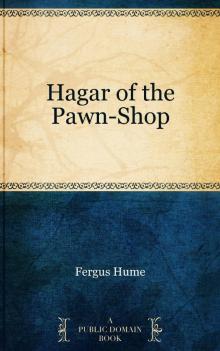 Hagar of the Pawn-Shop
Hagar of the Pawn-Shop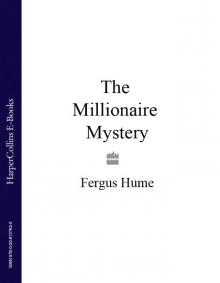 The Millionaire Mystery
The Millionaire Mystery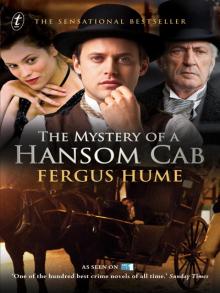 The Mystery of a Hansom Cab
The Mystery of a Hansom Cab